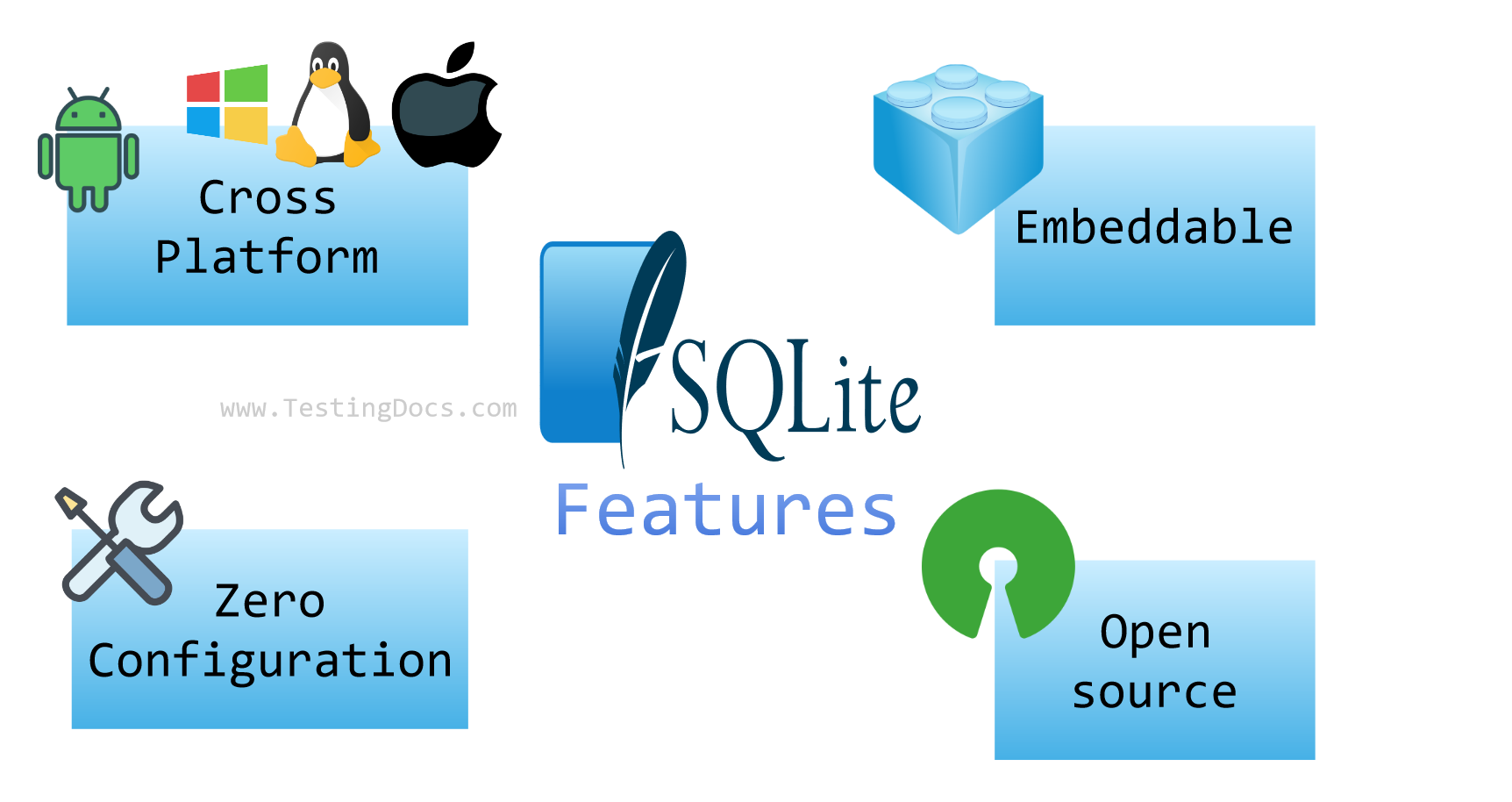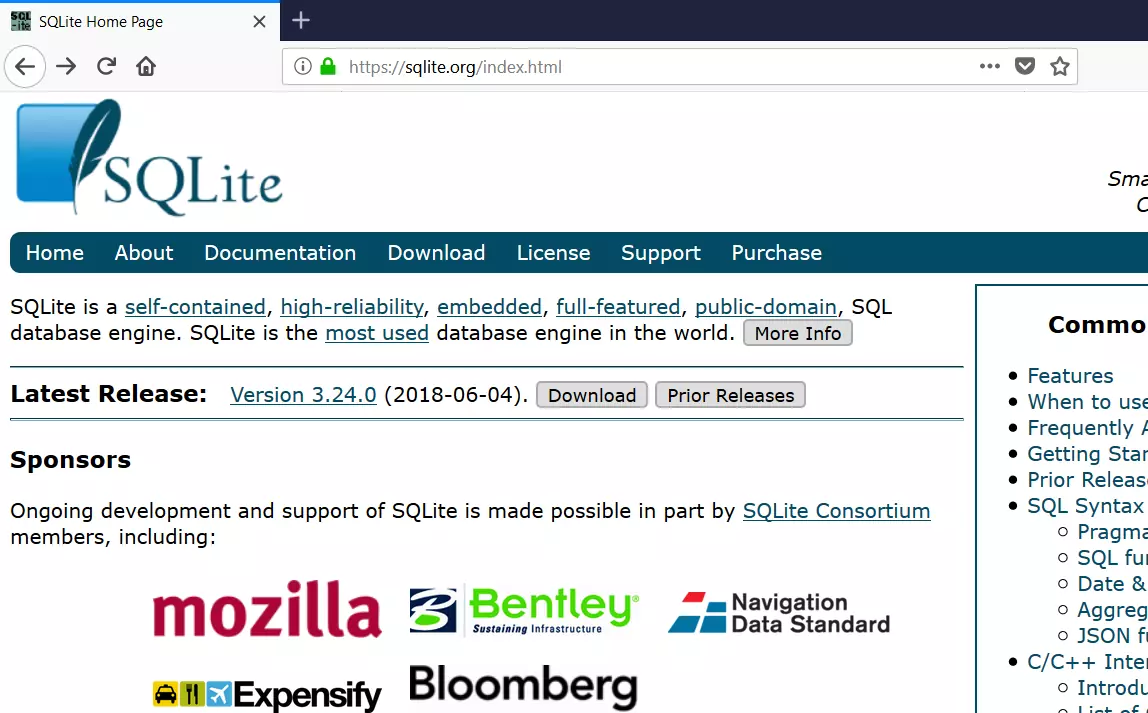SQLite Features
Overview
In this tutorial, we will learn the SQLite Features. SQLite is an open-source software library that implements a self-contained, serverless, zero-configuration, ACID-compliant transactional SQL database engine. SQLite is the most popular deployed SQL database engine.
SQLite Features
Some of the important features of SQLite database are as follows:
- Self-contained
- Serverless
- Zero configuration
- Cross Platform
- Lightweight
- ACID complaint
Self-contained
SQLite is self-contained. It doesn’t depend on any dependencies to operate. The entire database is stored in a single disk file on the host machine. The file can be copied from one machine to another, making SQLite databases highly portable.
Serverless
SQLite operates as a serverless database, meaning it doesn’t run as a separate server process. The database engine is embedded within the application that uses it.

Zero Configuration
SQLite doesn’t require a separate configuration process or setup. It’s designed to be simple and easy to use.
Cross-Platform
SQLite is cross-platform and can run on various operating systems, including Windows, macOS, Linux, Android, and iOS.
Lightweight
SQLite is lightweight and has a small footprint, making it suitable for embedded systems, mobile devices, and applications with limited resources.
ACID Compliant
SQLite follows the principles of ACID (Atomicity, Consistency, Isolation, Durability), ensuring the reliability of database transactions.
SQLite is widely used in mobile apps, embedded systems, desktop software, and other scenarios where a simple and lightweight database solution is needed. It’s particularly popular when a full-fledged client-server database management system may be overly complex or unnecessary.
—
SQLite Tutorials
SQLite tutorials on this website:
https://www.testingdocs.com/sqlite-database-tutorials/
For more information on SQLite, visit the official website:







